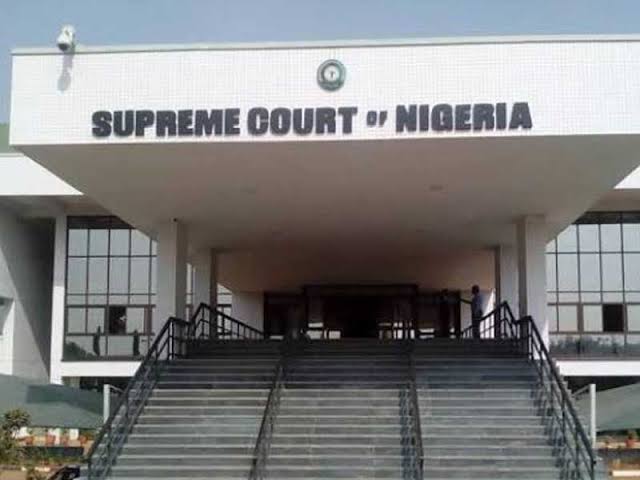
By Temitayo Olumofe
Local government autonomy in Nigeria has become an essential topic following a significant Supreme Court ruling on July 11, 2024. This landmark decision can transform Nigeria’s governance by allowing local governments to operate independently of state control.The implications of this ruling are profound, promising to enhance grassroots development and improve democratic practices across the nation.

The Supreme Court ruling: A turning point for local governance
The Supreme Court’s decision affirmed the financial autonomy of Nigeria’s 774 local government areas, allowing them to manage their resources without interference from state governments. This ruling came in response to a suit filed by the federal government, which sought to address the longstanding issue of state governors seizing local government allocations and controlling their operations.
According to the Honourable Minister of State for Defence, Dr. Bello Muhammed Matawalle, this judgment is a “significant milestone in promoting grassroots development and good governance” in Nigeria.
Matawalle emphasised that local governments can now prioritise projects that directly benefit their communities, leading to enhanced service delivery in critical areas such as healthcare, education, and infrastructure.
He stated, “This will boost their independence and direct accountability to the electorates.” The ruling effectively ends the practice of appointing caretaker committees to replace elected officials, ensuring that local governance is democratic and representative.This ruling represents a legal victory and a shift towards a more decentralised governance that aligns with democratic principles.
Local governments are often viewed as the most accessible form of governance for the people, making their empowerment essential for promoting civic engagement and participation. When local councils operate independently, citizens can anticipate more responsive leadership addressing their needs and challenges.Implications for Grassroots DevelopmentThe implications of this ruling extend far beyond financial management; they touch on the essence of democratic governance at the local level.
Historically, local governments in Nigeria have struggled under the weight of state control, which has stifled their ability to fulfil their mandates effectively. As public law scholar Abiodun Odusote highlights, “Local governments have been hampered in most states, where the governors seize their federal allocations and only release funds to them piecemeal. This lack of autonomy has often resulted in a disconnect between local administrations and the communities they serve.
With this new ruling, local governments can operate with greater freedom. They can collect revenues, allocate resources according to community needs, and implement projects without state approval. This shift is expected to foster a more responsive and accountable form of governance that prioritises citizens’ needs.Enhancing accountability and reducing political interference.
One of the most significant benefits of local government autonomy is enhancing accountability. When local officials are empowered to make decisions independently, they become more directly accountable to their constituents. This change could lead to improved governance as local leaders focus on delivering essential services rather than navigating bureaucratic hurdles imposed by state authorities.
Moreover, the ruling is anticipated to reduce political interference in local governance. State governors have historically exerted considerable influence over local councils, often dictating how funds are spent and which projects are prioritised. With the Supreme Court’s decision, such influence will be curtailed, allowing local governments to address community-specific issues effectively.If a community faces issues like poor roads or inadequate healthcare, local officials can prioritise these problems without needing approval from state governors with different agendas.
This localised approach ensures that resources are allocated where they are most needed, fostering trust between citizens and their elected representatives.
Challenges ahead: Ensuring effective implementation.
While the Supreme Court ruling represents a monumental step forward for local government autonomy in Nigeria, several challenges remain. The successful implementation of this decision will require robust political will at both federal and state levels.
Legislative measures are needed to support this newfound autonomy and ensure that local governments have access to adequate resources.
Furthermore, there are concerns about whether state governors will comply with this ruling or attempt to circumvent it through other means.
The history of political manoeuvring in Nigeria suggests that vigilance is necessary to ensure that local governments can operate independently.
Additionally, there may be resistance from entrenched political interests that benefit from maintaining control over local councils.
Advocacy groups and civil society organisations will be crucial in monitoring compliance with the ruling and holding state and local officials accountable.
Recommendations for strengthening local governance.
To maximise the benefits of this ruling, several recommendations can be made:
Implementation of the Fiscal Responsibility Act: Enforcing existing laws that promote financial accountability at the local level will be crucial.
Abolition of state-local government joint accounts: This would prevent states from siphoning off funds intended for local councils.
Expansion of local government’s revenue base: Local governments should explore diverse revenue-generating activities beyond federal allocations.
Strengthening electoral processes: Ensuring free and fair elections for local councils will enhance democratic legitimacy.
Capacity building: Training programs for local government officials on financial management and project implementation will equip them with the necessary skills.
A new era for local governance
The Supreme Court’s judgment marks a transformative moment for Nigeria’s democratic journey. Giving local governments financial autonomy opens up new avenues for grassroots development and effective governance.

As Dr Matawalle noted, “This decision would enhance grassroots development.”However, realising the full potential of this autonomy will require sustained efforts from all stakeholders, including government officials, civil society organisations, and citizens alike.By working together toward practical implementation and oversight, Nigeria can unlock its democratic dividends at the grassroots level.
While challenges remain on the path toward genuine autonomy for local governments in Nigeria, this Supreme Court ruling offers hope for a more equitable distribution of power and resources. It is an opportunity for citizens to engage actively with their leaders at all levels and advocate for policies that reflect their needs and aspirations.
As communities begin to harness this newfound power, they may very well find themselves on a path toward sustainable development and enhanced quality of life, genuinely unlocking Nigeria’s democratic dividends at last.

